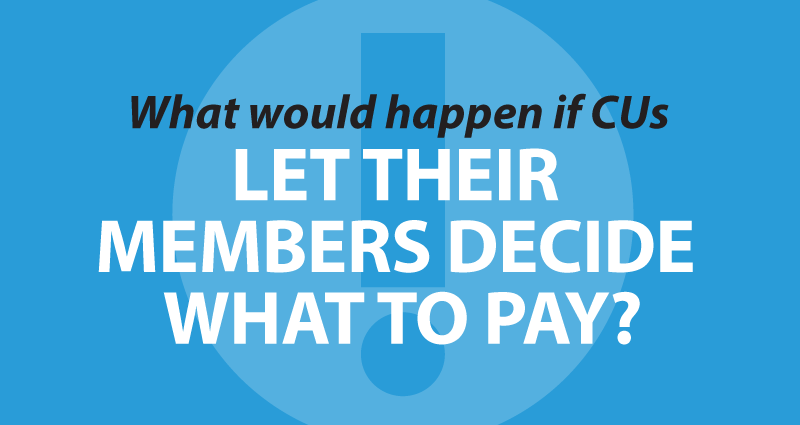
Pay-what-you-want banking?
If you were opening a new restaurant, would you consider letting your customers decide what to pay? Panera re-opened a restaurant as a nonprofit in Clayton MO, asking their customers to “pay-what-you-want” for their meals. Cashiers do tell customers a “suggested” price, and there are workers at the door to explain the concept that it is not meant to be a handout, but people are to decide on their own what to pay.
Turns out most people are pretty honest, with 60%-70% paying full price for their meal. About 15% paid less, even some paid nothing, but 15% paid more and a few have left big donations. Panera is encouraged by the results, predicting it will cover costs soon enough, and eventually generate enough that they can donate any profits to other charities.
Why would a restaurant chain with 1400 locations across the country want to do something like this? Ronald Shaich, Panera’s Chairman, wanted to find out if “we could take our skills — our core competencies, as we call them in business — and apply them very directly to solving some of the problems [in society]. And not just for publicity, but to make a difference?”
So I began to wonder…
Everyone needs financial services, so what if credit unions opened their hearts and doors even wider than usual?
What would happen if credit unions let their members decide what to pay?
Complete and utter chaos? Unlikely.
Some people taking advantage of the situation? Probably.
Tighter scrutiny over budgets and expenses? Possibly.
Finally getting the chance to turn non-profitable products into profitable products? Now that possibility alone might be worth letting your imagination run with this for awhile.
If a credit union was completely transparent about the costs that it takes to run and grow their organization, and their members were told exactly what things cost, would they be willing to pay for those services?
Would it change behavior?
When members realize that free checking might just be influencing the rates being charged for loans, will checking no longer be expected to be free? If the true cost of providing paper statements was known, would older members pay their share to get a big envelope each month? Would members be willing to pay for the convenience of more ATMs if they wanted them? What if members were able to bid on certificate and loan rates?
Maybe more importantly to our readers, would members increase the marketing budget once they understood that increased membership and participation benefits everyone?
Would this better explain the CU cooperative model?
What if credit unions were so completely open that banks were left gasping for air? If credit unions were the exception and transparency was their rule, would CUs leapfrog banks and become the dominant financial player?
- How to “do the right thing” without bragging - July 2, 2024
- Why you should offer “Furry Friend Savings” and “Vetmergency Loans” - May 7, 2024
- It’s hard not to get caught up in a buzz that surrounds you. - April 9, 2024
